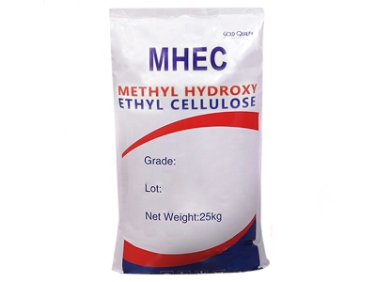When it comes to installing flooring, the top priority of every contractor is to ensure an even surface. If you end up with a concrete floor that is rough or uneven, you can quickly smooth it out with self-leveling mortar. This chemical mixture contains various active ingredients that, upon adding water, can be quickly stirred and spread across the floor to achieve a smooth, seamless finish.
The performance of self-leveling mortar will depend on the quality of the ingredients. One of the key ingredients is Methyl Hydroxyethyl Cellulose (MHEC), a powder and thickening agent derived from cellulose that’s commonly used in construction products, cosmetics, and detergents. Not all MHECs are created equal, which is why it pays to find a high-quality product that can get the job done right. Read on to learn more about MHEC, what it does, and what to consider when choosing the right MHEC for self-leveling mortar.

Methyl Hydroxyethyl Cellulose is commonly used in tile adhesive, putty powder, and self-leveling mortar. This versatile ingredient improves the performance of self-leveling mortar in the following ways:
● Acts as a thickening agent, making the mortar easier to spread
● Encompasses a wide range of viscosity grades, allowing you to achieve your desired level of thickening
● Minimizes viscosity loss to maintain stability
● Increases adhesion and bond strength
● Compatible with many ingredients including gum, resin, and most inorganic salts
● Extends the product’s shelf life due to its high stability
● Prevents coagulation of solid particles in the coating
A high-quality MHEC product is going to result in self-leveling mortar that stays fresher for longer, doesn’t shrink or crack, and spreads evenly across surfaces. Here are a few factors to consider in your MHEC:
1. Viscosity. MHEC comes in different viscosity grades. Self-leveling mortar usually requires low-to-medium viscosity grades so that the product can spread evenly across the surface.
2. Water retention. Hotter and drier climates require an MHEC with high water retention capabilities to prevent cracking.
3. Compatibility. Self-leveling mortars usually come with a few different active ingredients like inorganic salts, defoamers, gums, resins, and superplasticizers. You’ll want to ensure that your MHEC is compatible with these ingredients to avoid a faulty product.
4. Setting time. You want to ensure you have enough time to mix and spread the self-leveling mortar before it sets. Choose an MHEC that has a long enough hydration time between the initial wetting to when the solution starts to become viscous.
5. Quality. Some manufacturers skimp on ingredients to cut costs. Make sure your MHEC provider is consistent and reliable by reading customer reviews and visiting their website.
Good MHEC isn’t going to come cheap, but it should be affordable enough to fit within your budget. Visit us today to find premium quality MHEC perfect for mixing your own self-leveling mortar. HPMC Factory offers Methyl Hydroxyethyl Cellulose priced at an affordable rate without sacrificing performance or reliability. Our MHEC powder uses only the highest-quality ingredients to create a self-leveling mortar that you can rely on.
Related News and Blogs
24
Aug., 2024
Let's meet Indonesia Coatings Exhibition 2024
The 10th Paintistanbul & Turkcoat Fair will be held at the Istanbul Exhibition Center in Turkey from May 8th...
19
Nov., 2021
What Causes A Cracked Putty Layer?
The one-off scraping thickness of the putty is directly proportional to the curing shrinkage strength, which increases in proportion to the tendency of the putty to crack.
04
Nov., 2021
Whether you are carrying out small repairs or building walls, knowing how to mix the mortar needs to be precise. If the mortar is too dry, the blocks will not stick together properly. If it is too wet, flowing mortar can spill out of the joints, resulting in wasted time and materials for clean-up.
25
Oct., 2021
The Effect of Winter Construction Temperature on Tile Adhesives
As we all know, tile adhesive is generally made from cement and mixed with various additives. It is mixed with water at the construction site and then applied to the wall or floor.

Get in Touch
Interested in how our HPMC can enhance your personal care formulations? Contact us to request a free sample and experience the superior quality of our cellulose ether products.